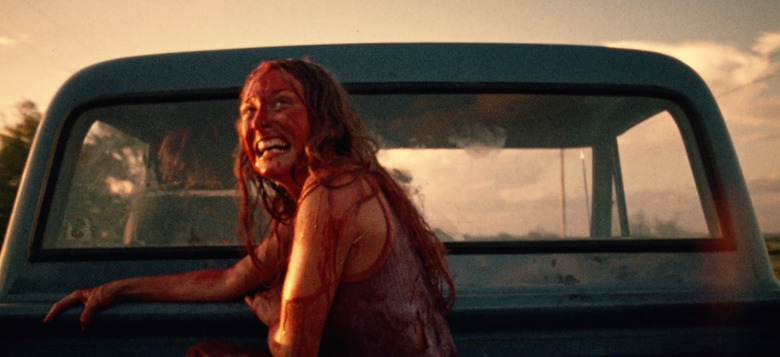Charlize Theron Teams Up With Andy And Barbara Muschietti For HBO Max's 'The Final Girl Support Group' Series
Andy Muschietti and Barbara Muschietti, the brother and sister duo behind Mama, It and It Chapter 2, are collaborating with Oscar-winner Charlize Theron to develop HBO Max's upcoming horror series The Final Girl Support Group. The series is based on Grady Hendrix's novel of the same name that was recently released on July 13.
Author Grady Hendrix has steadily grown to be a prolific voice in the horror community over the past few years with his debut novel Horrorstör and non-fiction book Paperbacks from Hell: The Twisted History of '70s and '80s Horror Fiction. He also wrote the screenplay for Satanic Panic, a horror-comedy acquired and produced in 2018 by Fangoria.
According to Deadline, his most recent novel The Final Girl Support Group will be brought to life by Charlize Theron's Denver & Delilah Films, Aperture Entertainment, and the Muschietti sibling's Double Dream. Andy Muschietti is set to direct the pilot and Hendrix is on board as executive producer. The novel's title "refers to a Los Angeles–based therapeutic support group for six 'final girls' — survivors of mass-murderer rampages whose experiences inspired the slasher franchises that saturated horror cinema in the 1980s and '90s, earning them minor celebrity."
To promote the novel's release on July 13, Shudder threw a two-week event entitled Stabby Saturdays, a live tweet-along event hosted by Hendrix himself and Ted Geoghegan, director of Mohawk and We Are Still Here. They screened cult slashers like The Slumber Party Massacre and Pledge Night complete with commentary from talented female voices within the film industry such as Bloody Disgusting's head critic Meagan Navarro and Screen Rant's feature editor Alisha Grauso.
Empathy for the Final Girl
A big misconception in the horror genre is that it only consists of gore and violence, or that there is no depth or even comedy. However, any horror fan and creator will tell you this is not the case. While the slasher subgenre, specifically, does have a notoriously gratuitous amount of violence, characters have been more developed in recent years through exploration of the themes of grief and trauma. For example, David Gordon Green's 2018 Halloween sheds light on generational trauma and how Laurie's daughter and granddaughter are all subsequently affected by her decades-long battle against the boogeyman Michael Myers.
There is also a really emotional scene in Scream 3 that not many people talk about these days regarding PTSD. Sidney is wandering around the set of Stab 3 and witnesses a completely fabricated version of Woodsboro. She goes into a structure of her house modeled to scale, and starts to have flashbacks, especially when she enters her mother's bedroom and sees the blood-splattered walls and overturned furniture. This kind of replication of one's trauma for entertainment was always something that I found psychologically fascinating (and sort of disturbing as well). Society's attraction to true crime can be seen in documentaries, books, as well as fictional films. So, it's interesting how documented versions of real trauma are artistically approached in a creative work of fiction.
With all that said, I'm really looking forward to not only reading Hendrix's book but also checking out this series because there aren't enough follow-up stories on the aftermath of trauma or how these horror stories affect their leading ladies. It'll be great to see how he takes the history of the final girl and gives her even more depth and determination.

